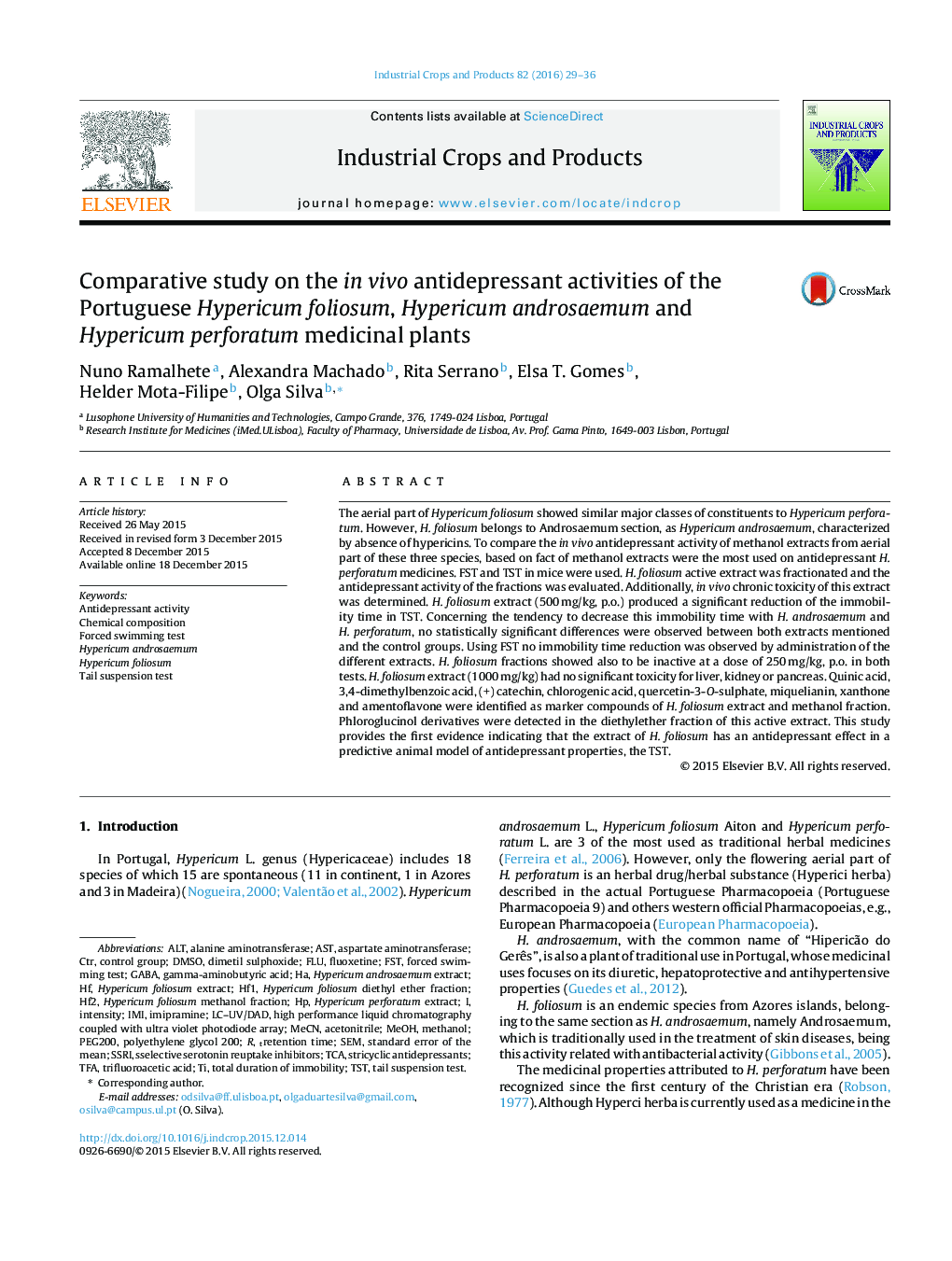| Article ID | Journal | Published Year | Pages | File Type |
|---|---|---|---|---|
| 4512207 | Industrial Crops and Products | 2016 | 8 Pages |
•Our study suggests the antidepressant activity of Hypericum foliosum extract.•This activity was less pronounced in H. androsaemum and H. perforatum extracts.•Chemical profile of the methanol extract of H. foliosum is studied.•We identify some major compounds in H. foliosum methanol fraction.•The mentioned compounds are not the only responsible for the antidepressant activity.
The aerial part of Hypericum foliosum showed similar major classes of constituents to Hypericum perforatum. However, H. foliosum belongs to Androsaemum section, as Hypericum androsaemum, characterized by absence of hypericins. To compare the in vivo antidepressant activity of methanol extracts from aerial part of these three species, based on fact of methanol extracts were the most used on antidepressant H. perforatum medicines. FST and TST in mice were used. H. foliosum active extract was fractionated and the antidepressant activity of the fractions was evaluated. Additionally, in vivochronic toxicity of this extract was determined. H. foliosum extract (500 mg/kg, p.o.) produced a significant reduction of the immobility time in TST. Concerning the tendency to decrease this immobility time with H. androsaemum and H. perforatum, no statistically significant differences were observed between both extracts mentioned and the control groups. Using FST no immobility time reduction was observed by administration of the different extracts. H. foliosum fractions showed also to be inactive at a dose of 250 mg/kg, p.o. in both tests. H. foliosum extract (1000 mg/kg) had no significant toxicity for liver, kidney or pancreas. Quinic acid, 3,4-dimethylbenzoic acid, (+) catechin, chlorogenic acid, quercetin-3-O-sulphate, miquelianin, xanthone and amentoflavone were identified as marker compounds of H. foliosum extract and methanol fraction. Phloroglucinol derivatives were detected in the diethylether fraction of this active extract. This study provides the first evidence indicating that the extract of H. foliosum has an antidepressant effect in a predictive animal model of antidepressant properties, the TST.
Graphical abstractFigure optionsDownload full-size imageDownload as PowerPoint slide
